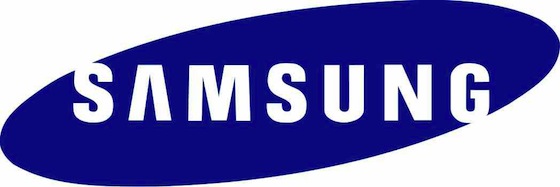Samsung’s smartphone rocket is soaring. The company will announce record profits this quarter of $5.9 billion based mostly on the strength of its Galaxy smartphone line, and the planets are aligned for the upcoming Galaxy S III, a smartphone that will be up for “Best of Breed” by the end of the year. In contrast, HTC’s profits are down 58% this quarter, despite having the best Android phone on the market for the last several months. With smartphone adoption booming worldwide, why this difference in the fortunes of the top two Android manufacturers?
Samsung’s Dominance:
Samsung’s mobile division does so well partly because it’s everywhere, all the time. The Galaxy series touches every market segment, from low-end devices to top-notch über-nerd smartphones. Samsung has multiple Galaxy phones placed in each U.S. mobile carrier, and that approach extends worldwide. Pundits like to talk about attacking the top of the market or the bottom. Samsung does it all.
Almost all of those devices have come out within the last two-plus years. Samsung has the engineering might to flood the entire globe with smartphones and the marketing budget to sell those devices. Samsung is the only company to take Apple’s iPhone head-on and win. The Galaxy S II was huge in 2011, and the S III will be huge in 2012. Then there is the Galaxy Nexus – the flagship Android Ice Cream Sandwich device – and the surprisingly successful 5.3-inch “phablet” (phone-tablet) Galaxy Note.
For the most part, Samsung has avoided injunctions against its devices in the U.S. mobile patent wars. It suffered a setback recently when Apple succeeded in having the Galaxy Nexus banned from sale in the U.S., but the market effect should be limited because the device has been available since the end of 2011 and it’s geared toward niche buyers who want a pure Android experience, unadulterated by carriers. And the company’s ability to keep all of those Galaxy devices on store shelves cannot be understated.
HTC’s Woes:
On the other hand, HTC has not been able to avoid injunctions coming from the courts at Apple’s behest. The HTC One X, arguably the best smartphone on the market, was blocked by the International Trade Commission for violating Apple’s patents. (For more on HTC’s patent woes see “Apple’s ‘647 Patent: What It Is and Why it’s Bad for the Mobile Ecosystem.”) That ban included several other HTC smartphones such as the Evo 4G LTE slated for Sprint.
In the smartphone market, time to market is a big part of the game. The quicker a smartphone can hit store shelves and get backed up with a robust marketing campaign, the better it does. Like many consumer products, smartphones will see an initial surge of sales when they are first released, and then sales tail off. Top-end phones have a longer tail (the original HTC Evo and the iPhone 3GS both saw good sales more than a year after launch), but the first month of sales is critical to the overall numbers.
The One X was released to AT&T in the second week of May 2012. It lasted for a couple weeks before Apple’s injunction took effect and did not return until the middle of June. A big part of the HTC’s 58% hit in profit was related to the injunctions. The company has revamped its approach to building Android devices in 2012, and HTC’s new devices are attracting great reviews.
High Stakes:
The difference between HTC and Samsung is profound. HTC is a much smaller company that focuses almost entirely on smartphones (with some tablets). It needs to be more strategic in how it brings devices to market, while Samsung can afford to flood the world. Samsung produces more than smartphones and is a prominent supplier of memory components to other device makers, Apple included. Samsung gets some 30% of its revenue from products other than phones, but HTC is completely reliant on them. HTC has much less margin for error (or injunctions).
Samsung’s sales do not look like they will be slowing down anytime soon. As for HTC, it needs to right its ship any way it can during the second half of 2012. If it fails to do so, we may have to add it to the list of once-great-but-now-dying smartphone manufacturers such as Research In Motion and Nokia.
Driven by breakthrough thinking and a wide-open sense of what’s possible, Alcatel-Lucent delivers the world’s most advanced technologies to companies all across the globe. Our driving motivation is to realize the potential of the connected world – by providing the technologies needed to turn networks into engines of sustainable economic growth, social development and opportunity. We provide a comprehensive suite of software solutions and services offerings designed specifically to meet the needs and demands of communication network operators and strategic industries. These solutions allow our customers to optimize network costs and quickly deploy innovative, value added products and services for their subscribers that increase loyalty and create new revenue streams. To learn more about how we’re turning the network into a platform, visit http://www2.alcatel-lucent.com/hln/network_evolution.php
Source Read Write Web
Most Popular Tech Stories
- Kelly Betting – How It Works and the Kelly Criterion Explained
- What are Pokies? – The Latest Guide to How Pokies Work in Australia
- AI industry needs annual revenues of more than the UAE’s GDP to offset costs
- Pepe Unchained Meme Token ICO Hits $2 Million – Could PEPU See a Post-Launch Surge Like PEPE?
- 4 Best Meme Coins to Buy with 100x Gains Potential – Top Picks for July 2024
Latest News
Does AI increase productivity at work? New study suggests otherwise
Artificial intelligence software reduces productivity and harms the working environment, according to a study from the freelance platform, Upwork. The findings appear to question how AI is being deployed at...

















